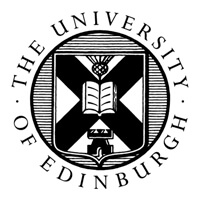Application
fees waived
fees waived
Persian and Middle Eastern Studies, MA (Hons)
The University of Edinburgh, United Kingdom
Apply
Subject ranking
Asian Studies
UK / CUG 2024 2nd
UK / CUG 2024 2nd
East and South Asian Studies
UK / Times 2025 4th
UK / Times 2025 4th
Overall
UK / ARWU 2024 5th
UK / ARWU 2024 5th
Costs
Course feesS$48K / year
Entertainment, books
food & rentS$17.1K / year
food & rentS$17.1K / year
Beer
S$9
MacDonalds
S$11
Cinema
S$17
Coffee
S$5
TotalS$65.2K / year
Entry requirements
A Level
ABB
International Baccalaureate
34
Scholarships
British Chevening Scholarships
100% for tuition and living expenses
Limited quantity
Limited quantity
Information
Course
Code
Code
T63H
Upcoming
Intakes
Intakes
Sep 2025
Course
Website (External)
Website (External)
Pathway
Programmes
Programmes
See pathways
University
Information
Information
WHATSAPP
+65 9650 3225
HOTLINE
+65 6333 1300
Duration
4
years
Graduate
2029
2029
About the course
Course summary
Persian is one of the major languages of the Middle East and Central Asia. Its modern form has three variants which, collectively, are the first language of over 120 million people. It is the national language of Iran, where it is known as Farsi. It is known as Dari in Afghanistan and Tajik in Tajikistan. To study Persian is to enter a rich and diverse culture that has produced:
- major epic and Sufi poets
- world-class cinema
- exquisite miniature painting and fine textiles
- historical
- literary
- cultural
- political
- Divinity
- Politics
- Social Anthropology
- History
- History of Art
A local representative of The University of Edinburgh in Singapore is available online to assist you with enquiries about this course.

